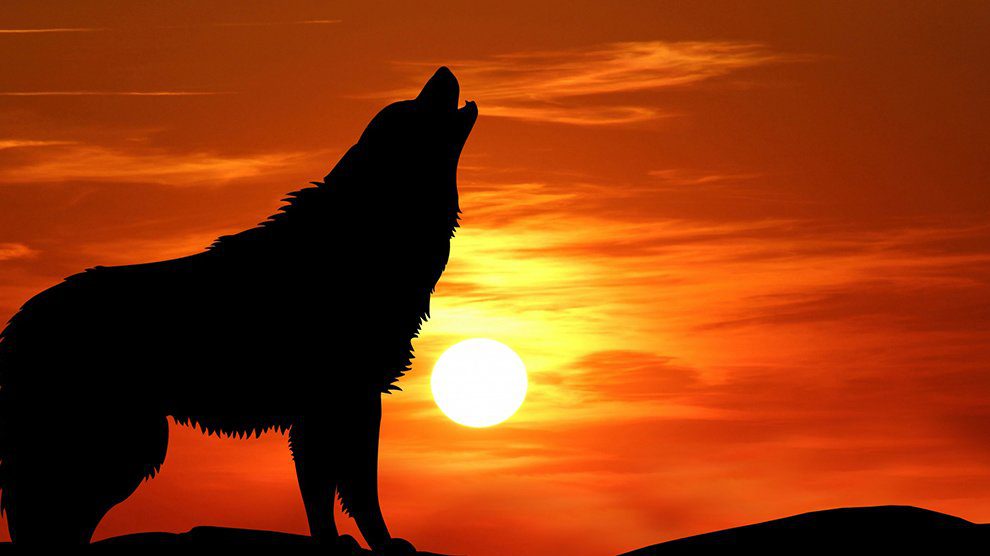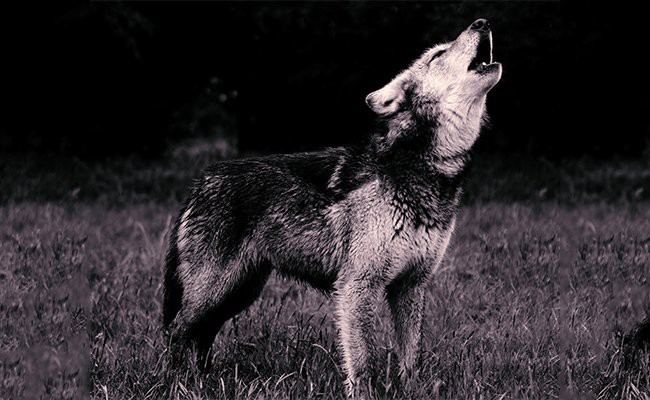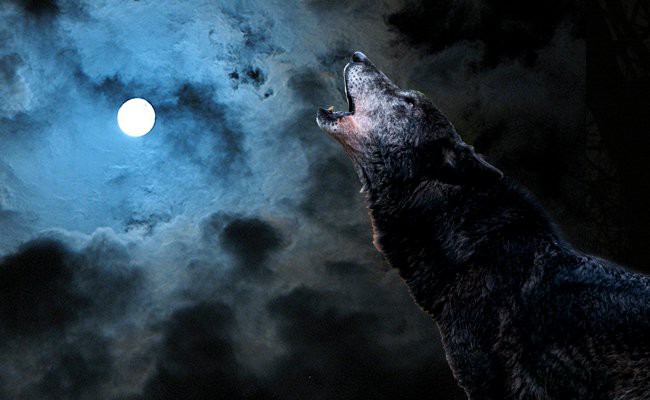Dog Pregnancy Calculator And Timeline
Dogs are one of the most fascinating and intriguing creatures on earth.
They are known for their ability to communicate with their owners through various ways like barking, wagging their tails, and even howling.
Dog howling is a unique vocalization that has been studied by animal behaviorists and researchers for many years.
We will explore the reasons why dogs howl, why they howl to music, why they howl at sirens, and even why they howl in their sleep and before an earthquake.
Why Do Dogs Howl?
Dogs howl for a variety of reasons. One of the most common reasons is that they are trying to communicate with other dogs.
In the wild, dogs howl to alert the pack members of their location and to call them to come back to the group. Domestic dogs still have this instinct, and they will howl to communicate with other dogs, even if they are not part of a pack.
Another reason why dogs howl is that they are trying to communicate with their owners. Dogs are incredibly social animals, and they love to be around people.
When they howl, they are often trying to get their owner’s attention or to let them know that they are feeling lonely or bored. Some dogs may also howl because they are in pain or distress.
For example, if a dog is injured or sick, it may howl to let its owners know that they need help. Additionally, dogs may howl if they are experiencing separation anxiety.
This is a common condition in dogs that are left alone for long periods of time, and it can cause them to howl and bark excessively.
Why Do Dogs Howl To Music?
It is not uncommon for dogs to howl when they hear music. This behavior is often seen in dogs that have a strong emotional connection to their owners.
When they hear music that they enjoy, they may howl along with the tune as a way of expressing their happiness. In addition to this, dogs have a keen sense of hearing, and they are able to pick up on sounds that humans cannot.
When they hear music, they may be able to detect certain frequencies and patterns that trigger their howling behavior. It is important to note that not all dogs howl to music.
Some dogs may be indifferent to music, while others may even find it irritating. It ultimately depends on the individual dog’s personality and preferences.
Why Dog Howls At Sirens?
One of the most common times that dogs howl is when they hear sirens. This behavior is often seen in dogs that live in urban areas where there are a lot of emergency vehicles on the road.
When they hear a siren, they may howl along with it as a way of joining in with the noise. Additionally, dogs may howl at sirens because they are trying to communicate with their owners.
They may be trying to let their owners know that there is something going on outside that they need to be aware of. This behavior is especially common in dogs that are protective of their homes and their owners.
It is also possible that the sound of sirens triggers something in a dog’s primal instincts. The loud, high-pitched noise may remind them of a howling pack of wolves in the wild, and they may feel compelled to join in with the howling.
Dog Howling Before Earthquake
One of the most fascinating aspects of a dog howling is that they have been known to howl before an earthquake.
This behavior has been observed in dogs all over the world, and it has puzzled scientists and researchers for many years. There are a few different theories about why dogs howl before an earthquake.
One theory is that they are able to detect changes in the Earth’s magnetic field. When an earthquake is about to occur, the earth’s magnetic field may change, which could cause dogs to feel anxious or stressed.
This, in turn, may trigger their howling behavior. Another theory is that dogs are able to detect subtle changes in the environment, such as changes in air pressure or the scent of gas.
These changes may occur before an earthquake, and dogs may be able to pick up on them, which could cause them to howl as a way of expressing their discomfort.
It is important to note that not all dogs will howl before an earthquake, and there is no guarantee that a dog’s howling behavior is a reliable predictor of an earthquake.
However, it is an intriguing phenomenon that has captured the attention of scientists and dog lovers alike.
Dog Howling In His Sleep
It is not uncommon for dogs to howl in their sleep. This behavior is often seen in puppies, but it can occur in dogs of all ages. When a dog is howling in their sleep, it is usually a sign that they are dreaming.
Just like humans, dogs dream during their sleep. They may dream about chasing rabbits, playing with their favorite toy, or even running through an open field.
When they dream, their brain may activate certain parts of their vocal cords, which can cause them to howl or make other noises.
It is important to note that if your dog is howling in their sleep, it does not necessarily mean that they are experiencing a nightmare or is in distress. Dogs may howl in their sleep simply because they are having vivid dreams, just like humans.
However, if your dog’s howling in their sleep is accompanied by other signs of distress, such as whimpering or shaking, it may be a sign that they are experiencing a nightmare.
In these cases, it is important to comfort your dog and provide them with reassurance.
Dog Howling Sounds
Dog howling sounds can vary depending on the breed and individual dog.
However, in general, a dog howl is a long, drawn-out vocalization that often starts low and then rises in pitch.
Some dogs may howl with a more melodic or musical tone, while others may sound more like a loud, mournful wail.
Here are some common dog howling sounds that you may hear:
- The Hound Howl: Hounds, such as Beagles and Bloodhounds, are known for their deep, baying howls. These howls are often loud and melodious, with a distinctive “wooo” sound.
- The Husky Howl: Huskies and other Northern breeds are known for their haunting, wolf-like howls. These howls are often high-pitched and can be quite musical.
- The Terrier Howl: Terriers may have a more sharp, yappy howl that is shorter in duration than other breeds. Their howls may be higher-pitched and more staccato.
- The Poodle Howl: Poodles may have a soft, whiny howl that sounds almost like a human crying.
- The Wolf Howl: Some dogs, particularly those with a strong wolf ancestry, may have a howl that sounds very similar to a wolf’s howl. These howls are often low-pitched and mournful.
It’s important to remember that howling is a natural behavior for dogs and can serve as a way for them to communicate with other dogs or express their emotions.
While it may be loud or unsettling to humans, it’s important to understand that it’s normal behavior for dogs.
However, if your dog’s howling is excessive or disruptive, it may be a sign of an underlying issue that should be addressed with the help of a veterinarian or professional dog trainer.
Why Is My Dog Howling?
If your dog is howling, there are a number of reasons why it may be doing so.
Here are some of the most common reasons why dogs howl:
- Communication: One of the primary reasons why dogs howl is to communicate with other dogs. Howling can serve as a way for dogs to locate each other or to communicate over long distances.
- Separation anxiety: Dogs that experience separation anxiety may howl as a way of expressing their distress when their owners leave them alone.
- Attention-seeking: Some dogs may howl as a way of getting attention from their owners. If your dog is howling and you respond by giving them attention, they may continue to do so in the future as a way of getting your attention.
- Response to noises: Dogs may also howl in response to noises that they hear, such as sirens, other dogs howling, or music.
- Health issues: In some cases, dogs may howl as a result of health issues, such as hearing loss or cognitive dysfunction.
If you are concerned about your dog’s howling behavior, it is always a good idea to talk to your veterinarian.
They can help you determine if there is an underlying health issue that may be causing your dog to howl, or if there are other behavioral factors that may be contributing to the behavior.
In addition, working with a professional dog trainer or animal behaviorist can help you identify the root cause of your dog’s howling behavior and develop strategies to manage or modify the behavior if needed.
Dog Howling At Night
If your dog is howling at night, there could be a few reasons why they are doing so.
Here are some of the most common reasons why dogs howl at night:
- Loneliness: If your dog is alone at night, it may be howling as a way of expressing its loneliness or anxiety. Dogs are social animals and may feel distressed when they are separated from their owners or other dogs.
- Hearing other dogs: If your dog is able to hear other dogs howling or barking in the neighborhood, they may be howling in response. Dogs have a natural instinct to communicate with each other, and howling can be a way of joining in with the “conversation.”
- Attention-seeking: Some dogs may howl at night as a way of getting attention from their owners. If your dog has learned that howling gets them attention or a reward, they may continue to do so.
- Separation anxiety: Dogs with separation anxiety may also howl at night as a way of expressing their distress when their owners are not with them.
- Health issues: In some cases, dogs may howl at night as a result of health issues, such as hearing loss or cognitive dysfunction.
Tips For Managing Dog Howling At Night
If your dog is howling at night and it is causing a disturbance, it is important to address the behavior.
Here are some tips for managing howling at night:
- Provide plenty of exercise and mental stimulation during the day to tire your dog out and help them sleep more soundly at night.
- Create a comfortable and secure sleeping area for your dog. Consider using a crate or bed that is cozy and familiar to your dog.
- Try leaving a TV or radio on at a low volume to provide background noise that can be soothing for your dog.
- Work with a professional dog trainer or animal behaviorist to develop a plan for managing or modifying your dog’s howling behavior if necessary.
Remember that howling is a natural behavior for dogs and can be a way for them to communicate or express their emotions.
By understanding the root cause of your dog’s howling at night, you can take steps to address the behavior and help your dog feel more comfortable and secure.
Conclusion
Dog howling is a fascinating behavior that has been studied by animal behaviorists and researchers for many years.
Dogs may howl for a variety of reasons, including to communicate with other dogs, to communicate with their owners, and even to express their happiness when they hear music.
Dogs may also howl at sirens as a way of joining in with the noise or to communicate with their owners about something going on outside.
And while it is not necessarily a reliable predictor of an earthquake, some dogs have been known to howl before a seismic event.
Overall, dog howling is a unique behavior that adds to the charm and mystery of these beloved animals.
Understanding why dogs howl can help us better communicate with them and deepen our appreciation for their complex and fascinating personalities.





















